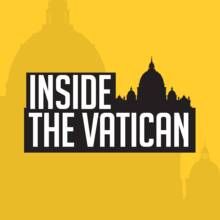Molly Burhans, the founder and executive director of GoodLands, has created what may be the world’s largest set of Catholic geographic information. Her nonprofit organization has mapped church-owned properties around the world with a view towards using the church’s resources more responsibly.
Listen and subscribe on Spotify and Apple Podcasts.
This work has taken on an increased importance during the coronavirus pandemic: As she explains on “Inside the Vatican,” knowing the location of church hospitals in relation to, for example, low-income communities, potable water, and other health programs can help the church to use its resources more efficiently to extend care to the largest number of people.
Molly speaks with me on the show about her recent work consulting with a working group on the Vatican’s Dicastery for Promoting Integral Development’s new document about water, sanitation, and hygiene. We discuss the links between ecology and the coronavirus pandemic, and Molly makes the case for environmental programs as a necessary part of Catholic healthcare.
Links from the show:
Explore GoodLands’ Catholic GeoHub









